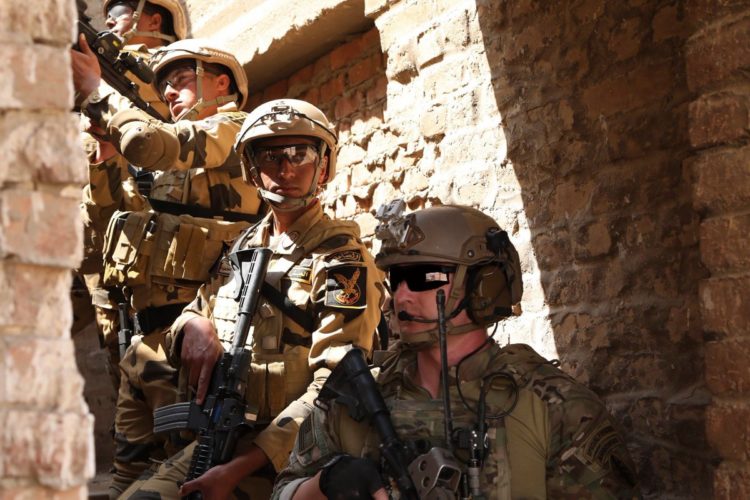At the annual African Union (AU) summit in the Ethiopian capital city of Addis Ababa, Egyptian President Abdel Fattah al-Sisi urged for the formation of a joint military force to combat terrorism and other growing threats on the continent.
According to Sisi, the proposal “derives from Egypt’s belief in the importance of forming this force for peace and security in Africa.” Egypt is one of a number of African countries that have been plagued by both domestically-sprung violence and violence stemming from its neighboring states.
The suggestion comes at the end of Egypt’s year of holding the African Union’s rotating presidency — during its AU presidency conflict has been a central focus of the Union. Last year, Egypt hosted delegations and sought to mediate conflicts and crises in Libya, Sudan, and South Sudan.
In addition to calling for a pan-African fighting force, Sisi offered to host a summit on the subject in Cairo: “I affirm Egypt is ready to host this special African summit stemming from its responsibility and believing in the importance of this proposed [force] to achieve peace and security in Africa,” the general turned president said.
This reflects the increasing concerns across the continent over growing violence along the Sahel, the region just south of the Sahara. France has been deploying troops to several African countries as a result. The surge in violence poses the risk of seeing some of these conflicts becoming increasingly transnational.
The fall of Colonel Gaddafi of Libya in 2011 has resulted in massive weapons proliferation across the continent and fuelled wars in Mali, Niger, and elsewhere. The rise of Boko Haram resulted in several of Nigeria’s neighbors, like Chad, being dragged into cross-border conflicts.
As one of Africa’s military giants, a joint military venture would likely also augment Egypt’s influence on the continent. During a meeting of chiefs of staff from countries throughout the Sahara and the Sahel in Cairo, which took place at the same time as the summit in Addis Ababa, the Egyptian government offered to train other militaries in order to better prepare them to face their own challenges.
Nonetheless, the hypothetical pan-African force would not be controlled by Egypt but rather by the Peace and Security Council, which is the executive wing of the African Union.
The idea is, however, facing some pushback already. Moroccan Foreign Minister Nasser Bourita pointed to his country’s involvement in United Nations peacekeeping operations and emphasized that what was needed was a “common African vision, in which each country contributes, yet with military independence.”
In addition, numerous challenges would remain to create a unified force. Issues of where it would be based and under what conditions it could operate have yet to be addressed. Additionally, funding is likely to be a key issue. During the same summit, the African Union agreed to postpone the use of its funds for security operations with the bloc reaching less than half of its funding goal.
The willingness to discuss the matter is an indication of wider attempts at African integration. At the same time, there has been the creation of the African Continental Free Trade Area as well as ongoing efforts to create a single African Union passport to enable visa-free travel for Africans across the continent.
Already have an account? Sign In
Two ways to continue to read this article.
Subscribe
$1.99
every 4 weeks
- Unlimited access to all articles
- Support independent journalism
- Ad-free reading experience
Subscribe Now
Recurring Monthly. Cancel Anytime.











COMMENTS